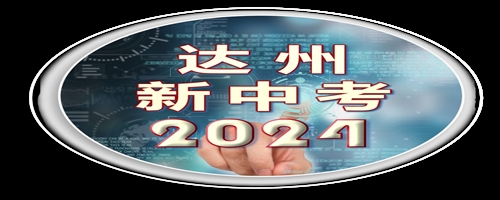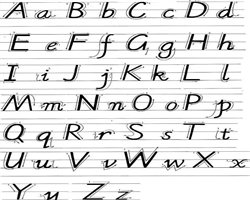Unit 13---Unit14 疑难点
一、疑点难点破解
1. You have to be careful.你得小心。 疑点:be careful“小心,当心”
如:Be careful while crossing the road.过马路要小心。
难点:be careful后常跟of短语。与它同义的有look out。
如:Aren't you a bit too careful of your health?你对个人的健康难道不是有点过于小心了吗?
Look out!There's danger ahead.当心!前面有危险。
2. At times an ad can lead you to buy something you don't need at all.有时广告可能导致你买你根本不需要的东西。
疑点:at times= sometime,是副词性短语,表示事物发生的频率。
如:He is late for school at times.他有时上学迟到。
难点:1)对含有at times的短语进行提问时,用How soon.
如:How soon does he go to school late?At times.
2)句中lead意为“使得、导致”,常用于短语lead sb. to do sth.“导致某人做某事”
如:What leads you to think so?
3.Soft lighting makes people look good,but it make food look bad.柔和的光线使人的脸色看上去很好看,但使食物看起来很难看。
疑点:look good/bad意思为“外表的颜色看起来好看/难看”
如:The traffic accident made him look bad.
难点:look fine/ well指看起来身体健康
如:You look better today than yesterday.你今天看上去比昨天好多了。
3. It makes me want to join a clean-up campaign.这让我想加入一次清扫大运动。
疑点:注意join的用法:(1)join加入军队,政党,组织等,成为其中一员。
如:The next year he joined the union.第二年他加入了工会。
(2)join加入某人,并一起进行某项活动。
如:She joined her husband in his study.她与她的丈夫一块从事他的研究。
难点:与join意思相近的短语take part in也表示“参加……”,take an active part in积极参加。它侧重于参加某项活动或运动。
如:Do you take an active part in sports?你积极参加体育活动吗?
4. For instance,they can help you to compare two different products so that you can buy the one you really need.
例如,他们能够帮你比较两种不同的产品,以至于你能买到你真正需要的那个。
疑点:for instance相当于for example 意思为“例如”
如:He likes all kinds of sports, for instance he likes playing soccer very much.
难点:句中的compare意为“比较,对照”,可以构成短语compare...with...把……与……相比,compare...to...把……比作……
If we compare French schools with British schools,we will find many differences.
如果我们把法国的学校与英国的学校相比,会发现许多不同之处。
如:The poet compares the woman he loves to a rose.
这位诗人把他所钟情的女人比作玫瑰花。
5. If you think flowers are too feminine a gift for a man to receive,you can consider giving a plant instead.
如果你认为鲜花对一位男士来说太女性化而不好接受,你可以考虑送一种植物。
疑点:consider doing sth. 考虑做某事
如:I'm considering changing my job.我正在考虑换工作。
难点:consider还可以加that从句,表示“考虑到…”;还可以组成短语consider sb. +n/adj, 表示“把…看作/认为…”
如:If you consider that she's only been studying English for six months,she speaks it well. 如果考虑到她学英语才六个月,那么她讲英语讲得的确不错了。
Do you consider her suitable for the job?你认为她做这工作合适吗?
二、重点讲解
1. Rainy days make me sad.雨天使人沮丧。 make的用法
(1)make+n.make food 做饭make a plane做飞机make the bed 铺床 make money 赚钱 make sb./sth.+adj.使某人(感到),使……处于某种状态
(2)make的宾语之后可跟名词、形容词、分词来充当宾语的补足语
1)名词作make的宾语补足语
The party made her a good teacher.党把她培养成为一名好教师.
2)形容词作make的宾语补足语
如:Soccer makes me crazy.足球使我疯狂。
The soft music makes Tina sleepy.轻柔的音乐使Tina快睡着了。
Waiting for her made me angry.我很生气一直等着她。
可用到的形容词有:happy,pleased,surprised,angry,annoyed,sad,upset,unhappy,worried,anxious,excited,relaxed,stressed out,tense,calm,scared,comfortable,sick…
3)分词作make的宾语补足语
如: I made myself understood by all the students.
You must make yourself respected.
(3). make sb./sth.+do…使某人做某事(不能带不定式符号to)
如:Wars make the peace go away.战争使和平远离。
注意:当make用于被动语态时,必须带不定式符号to.
如:We were made to work all night.我们被迫日夜工作。
(4). make it习惯用语,及时赶到,到达目的地
如:I just made it to my class.(Unit 9)我恰好赶到班级。(arrived in time)
(5). make of /from./out of
make of 原材料制成成品后,原材料未经任何化学变化,仍保持原有性质.
如:The chair is made of wood.
make from当原材料制成成品后,经过了化学变化,失去了原有性质.
(6). make up of 常用于被动结构:be made up of…相当于consist of…(由……组成)
make up from 由…..所制造
如:A car is made up of many different parts.
She wore a necklace made up from gold coins.她戴着一串由金币制成的项链.
2.…but don't really tell you anything about the quality of the product.但没有真正告诉你有关产品质量的任何问题。
tell sb. about sth.“告诉某人有关某事”,tell sb. sth.“告诉某人某事”。
如:The granny told us about a thief breaking into her house.
Tell me where you live.告诉我你住在哪儿。?
3. They also have to know how to make money.他们还必须知道如何赚钱。
(1)know how to do 其中的不定式带有疑问词。
know what to do 知道做什么。这一句式可以改为复合句,上句也可为:
They also have to know how they can make money.
又如:Please tell me when we should leave. =Please tell me when to leave.
请告诉我什么时候离开。
(2)make money/earn money挣钱
如:His father makes /earns a lot of money as a pilot.他父亲当飞机驾驶员挣钱很多。
4. However,some advertising can be confusing or misleading.
然而,一些广告会混淆或误导你。
(1)confuse v.使迷惑;confusing adj令人迷惑的;confusedadj.迷惑的,糊涂的
如:Waking up in strange surroundings confused her.她醒来时看到一片陌生的环境,这把她搞糊涂了。
The instructions are very confusing and I can't understand them.这些指示莫名其妙,我没有办法理解
He gets confused easily.他很容易被弄糊涂。
(2)mislead v.使某人想错/做错,误导;misleading adj.令人受误导的
如:a misleading description/advertisement误导人的描述(广告)
5. Be sure to follow your host's suggestions.务必要遵从主人的暗示或提议。
(1)be sure to别忘了,记住
如:Be sure to turn everything off before you go to bed.别忘了睡觉之前关上各样东西。
(2)be sure to do一定会……的,必定会发生的。
如:It's sure to rain. 必定会下雨。
(3)be sure of 对……有把握。
如:He's sure of living to ninety.他对活到90岁很有信心。
三、语法展示
宾语补足语
1.宾语补足语和宾语一起称为复合宾语,可作宾语补足语的有:名词,代词,形容词,副词,分词,不定式,介词短语,名词从句。
如:(1)We call him Jim.我们叫他吉姆。
(2)Whom do you think of me? 你以为我是谁?
(3)Please keep the room clean.请保持室内清洁。
(4)He found her out.他发现她出去了。
(5)She found the book interesting.她认为这本书很有意思。
(6)You'd better have your shoes mended.你还是请人把鞋补一补吧。
(7)Make yourselves at home.不要受拘束。
(8)We made him what he is.是我们使他成为现在这样。
2.宾语补足语的注意事项
1)作宾语补足语的形容词应放在宾语后,若放在前则变成了定语。
如:(1)We found the man honest.我们发现此人很诚实。(宾补)
(2)We found the honest man.我们发现了这个诚实的人。(定语)
2)在动词elect,choose,make之后用作补语的名词,若是表示“身份,职位”则不带冠词。如:They elected Li Lei monitor last week.上周他们选李雷当班长。
3)有些动词后通常跟“to be+名词或形容词短语”作补语,但to be常省去。这些动词有:think,consider,believe,imagine,suppose,see,find,feel,etc.。
如:He thinks himself (to be) a clever man. 他认为自己很聪明。
4)复合宾语可变为宾语从句。
如:We think her a nice woman.→We think that she is a nice woman.我们认为她是个很好的人。
5)动词let,make,have及感官动词后用不带to的不定式作补语,若变为被动语态,应将to加上。
如:I saw tears come into her eyes.→Tears were seen to come into her eyes.我看到她眼里含着泪。
6)感官动词后跟不带to的不定式或现在分词作补语,其区别在于不定式强调事实经过或动作已完成,而现在分词则强调当时情景或动作正在进行。请比较。
如:I like to hear her sing.我喜欢听她唱歌。
I heard her singing last night.昨晚我听到她在唱歌。
一、疑点难点破解
1. Have you turned off your radio?你关掉收音机了吗?
疑点:turn off表示“切断、关上”之意,用于指切断电源、关上水管等。它的反义词是turn on。当关掉的东西是代词时,把代词放在中间。
如:His mother told him to turn off TV and do his homework.他母亲叫他关掉电视去做作业。
The tap is broken.If you want to save water,you must turn it off.
难点:与此相关的短语还有turn up“开大声”,turn down“关小点声”。用法同turn off/on.
如:It is too noisy. Please turn your radio down.
I can't hear clearly. Would you please turn the tape up?
2.In the past twelve months they've had three major concerts and made a hit CD.在过去的12个月里他们举行了3次大型演唱会,出了一盘火暴的CD。
疑点:for/in the past/last twelve months/years/days/etc.常与现在完成时态连用。
如:(1)For the past few days he has been ill.几天来他一直生病。
(2)She has been ill for the last three days.这三个星期他在生病。
(3)In the past three years we have learned two thousand English words.
3年来我们学了2000个英语单词。
难点:用于肯定句时,和以上短语连用的动词必须是延续性动作。
如:He has had(而不是bought)the book for three years.他已经买这本书三年了。
You have kept(不用borrow) the book for two weeks.你已经借这本书两个星期了。
3. This program started in 1980 and so far has brought thousands of overseas Chinese students to China to look for their families'roots.这个项目是1980年开始的,到目前为止已经帮助了几千名海外中国学生来中国寻根。
疑点:so far意为“到目前为止”,相当于till now/up to now,可用于句首或句末,用作状语,表示范围、程度或距离,通常作为现在完成时的时间状语出现。
如:I have read many foreign stories so far.
难点:so far as 意为“就…而论”、“到…程度”,表示程度、距离等。
如:So far as I know,he has been to Beijing many times.据我所知,他已去过北京许多次了。
4. I agree with you. 我同意你的看法。
疑点:agree with sb./sb.'s idea/ sb.'s view同意某人,同意某人的观点、想法、主意。
如:My mother doesn't agree with my father and me.我妈妈不同意我和爸爸的想法。
难点:agree还有许多的用法
(1)用于简短回答中“同意”或“赞成”。如:Chocolate is good for your health. Do you agree?
Yes,I agree./No,I don't agree.
(2)agree to do sth同意去做某事。如:I agree to ask someone for help.我同意向别人求助。
(3)agree to sth赞成某个建议、安排等。如:He agreed to your suggestion.他赞成你的建议。
(4)agree on sth. 在……方面达成一致。如:We agree on a price for the car.我们就车价达成一致意见。
(5)agree that+从句。如:Tom's mother agree that he went on with his study.
5.You have probably never heard of Amy Winterbourne.你大概从未听说过Amy Winterbourne.
疑点:hear of/about听说,接名词、代词或动名词。如:I have never heard of the story before.
难点:1)hear表示听说时,后面接宾语从句。
如:I heard that his father died yesterday.
2)hear from=get/receive a letter from意为“收到…的信”,“得到…的消息”from后面加表示人的名词或代词
如:How often do you hear from your father?你每隔多久收到你父亲的来信?
6. The walls are made from old glass bottles that are glued together.墙是由胶合在一起的旧玻璃瓶做成的。
疑点:be made from 意思是“由… 制成”,但制成品不能看出原材料。
如:Paper is made from wood.纸是由木头制成的。
难点:be made还可以构成其他词组,注意区分。
(1)be made of意为“由…原材料制成”,主语为制成品,而且能看出原材料,of后面接表示原材料的名词。如:This jacket is made of cotton.这件上衣是棉花做的。
(2)be made in表示某一产品在某地生产或制造,in后面跟表示地点的名词。
如:Trains are made in Zhuzhou.火车是株洲制造的。
(3)be made by意为“由(谁)制造的”,by后面接动作的执行者。如:The desk was made by his brother.这张桌子是他弟弟做的。
二、重点讲解
1. Have you packed yet?你打包了吗?
(1)这是一个现在完成时的句型,它是在两个时间上,一是过去,一是现在。它的动作发生在过去,但对现在有影响或结果,而这种影响和结果是说话人的兴趣所在,所以常常后面不用时间状语。Have/has+动词的过去分词,是它的基本结构。
如:Someone has broken the door.有人把门打破了。(结果,门仍破着)
(2)pack包装,把……装箱pack sth(up)into…整理行装
如:Pack clothes into a truck.把衣服装进衣箱内。
pack into塞进,挤进。如:The children packed into the cinemas on a wet day.在雨天,孩子们挤进电影院。
2. I have not cleaned out the refrigerator yet.我还没把冰箱清除干净。
clean sth out打扫某物之内部,扫除某物的尘土等。如:It is time for you to clean your bedroom.现在该你打扫你的卧室的时候了。
clean sth up清除罪犯和不道德分子,整顿(某物)。
如:The mayor has decided to clean up the city.市长已决定要整顿市政。
clean sth down清扫,擦干净。如:Clean down the walls.把墙上的尘土扫下。
3. I have not done any of these things yet Because my grandfather came to chat to me.那些事情我一样也还没做,因为我祖父来和我聊天。
(1)because连词,因为。如:I did it because they asked me to do it.我做这事是因为他们要我做。
(2)because所表达的原因是不知道的,如要表达明显的理由,或被认为是知道的,就用as,for,或so。如:As it is raining,you had better take a taxi.=It is raining,so you had better take a taxi.既然下雨,你最好坐出租车来。
(3)because of 后面加名词或名词短语。
如:Because of his bad legs,he could not walk so fast as the others.因为他的腿有毛病,他不能和别人一样走得快。
4.Be sure not to miss them if they come to a city near you-if you can get tickets.如果他们到了一个离你近的城市,务必不要错过,如果你能得到票的话。
be sure to do务必,一定要。如:Be sure to tell me when you arrive home.到家后务必要告诉我一声。
★注意动词不定式to do的否定形式,要直接在to do前加not。如:Be sure not to wake up the sleeping boy.一定不要吵醒在睡觉的孩子。
5. I feel like I have done something that wasn't important to me before.我想我做了些原先对我并不重要的一些事情。
feel like+ doing sth.想要,欲要。如:I don't feel like eating a big meal now.我现在不想吃大餐。
6. They provide homes for many endangered animals,and help to educate the public about caring for them.我们为濒危动物们提供住所,并教育公众照顾他们。
provide sth for sb /provide sb with sth把某物提供给某人。如:These letters should provide us with all the information we need.这些信应该为我们提供所需的全部信息。
三、语法展示
(一)特殊副词的用法
现在完成时态我们在前面的一、二个单元中已讲述过,所以本单元只讲现在完成时态与几个副词的关系。
1. ever, never
ever“曾经”,表示从过去到目前为止的时间,用于现在完成时态的疑问和含有最高级的从句中,否定句中常用never代替ever,在反意疑问句中,附加问句用肯定。
如:(1)Have you ever been to Hefei?你曾去过合肥吗?
(2)This is the most interesting film that I have ever seen.这是我曾看过的电影中最有趣的一部。
(3)He has never been to the Great Wall,has he?他从未去过长城,是吗?
2. still,just
still“仍然,还”,强调过去开始的情况或动作仍在继续,指时间,强调延续;just“刚刚,刚才”,多与现在完成时连用。注意要与just now区别开,just now指过去的时间,常与过去时连用。
如:(1)Has your sister still lived here?你妹妹仍然住在这儿吗?
(2)I have just finished lunch.我刚吃过中饭。
(3)I saw her mother just now.我刚才看见了她母亲。
3. before,ago
两者都可作副词用,before表示过去时间的以前,可独立使用,泛指“以前”,可用于现在完成时态或一般过去时态。ago不能独立使用,要置于时间段的词组之后,只能用于过去时态,表示从现在算起以前的时间。但可以用在情态动词加完成时态结构中,表示现在对过去发生的事情的推测。此外与since连用,构成since…ago用于现在完成时态。
如:(1)She has seen the film before. 她以前看过这部电影。
(2)Mary saw Jim a week ago.玛丽一周前见过吉姆。
(3)A lot of new things have happened since ten years ago.自十年前以来发生了很多新鲜事。
4. since,for
since:“自从”,表示的是一个时间点,可用作介词,也可作连词。用作介词时,后接指时间点的名词或短语;用作连词时,后跟一个时间状语从句,但其前的谓语动词或主句的谓语动词须用现在完成时。for构成的短语在现在完成时里,表示时间的长度,后须跟“一段时间”,不可跟“时间点”。
如:(1)He has worked at that factory since he came to the city.他到这城市以来一直在这家工厂工作。
(2)I have studied English for three years. 我学习英语已有三年了。
(二)have been to 与have gone to 的区别
(1)have been to表示“已经去过某地”,现在已经不在所去的地方了
如:He has been to America twice.他已经去过美国两次了。
(2)have gone to表示“去了某地”,并未回来,最起码不在当地。
He is not here. He has gone to America.他不在这里,他去美国了。
Unit 13---Unit15单元重难点句子讲解
1. I'd rather go to the Blue Lagoon Restaurant... 我宁愿去Blue Lagoon餐厅,……
would rather意为“宁愿……”,表示句子主语的愿望、选择,后接省去to的不定式。
He'd rather join you in the English Group. 他宁愿加入到你的英语小组中来。
Which would you rather have, bread or rice? 面包和米饭,你更喜欢哪一个?
如果表示“宁愿(可)……也不愿……”则用句型would rather...than...。在would rather和than后面所连接的两个对比部分一般要一致。
The brave soldier would rather die than give in.那个勇敢的士兵宁死不屈。
He'd rather work than play. 他宁愿工作也不愿玩。
They preferred to die of hunger rather than take his bread.
他们宁愿饿死也不愿接受他的面包。
2. Loud music makes me happy. (P103)嘈杂的音乐使我很开心。
Loud music always makes me want to dance. (P103)嘈杂的音乐总是使我想去跳舞。
这两句是动词make的使役用法,make me后分别接了形容词和不定式短语。make的这种用法常见于以下结构:
◎ make+名词(代词)+省略to的动词不定式
My parents often make me do some other homework. 我父母常让我做些其他的作业。
特别提示
这一结构中的不定式短语在主动结构中是宾语补足语,必须省去to,变为被动结构时,不定式短语作主语补足语,这时必须带to。
She was made to work for the night shift. 她不得不上夜班。
◎make+名词/代词+-ed分词短语
What made them so frightened?什么使他们这样害怕?
Can you make yourself understood in English?你能用英语把意思表达清楚吗?
◎make+名词/代词+介词短语或名词短语
She made him her assistant. 她委派他做自己的助手。
Sit down and make yourselves at home, everyone.大家请坐,不要拘束。
◎make+名词(代词)+形容词或形容词短语。
The good news made us happy. 这条好消息使我们很高兴。
3. ... small restaurants can serve many people every day. (P104)……小饭店每天就可以多接待些顾客。
句中的serve 有“服侍,侍候,招待”等意思,常用于以下结构中:
◎ serve+宾语
They were busy serving the day's last buyers.他们正忙着接待这天的最后一批顾客。
Nobody can serve two masters. 一人不能侍奉二主。
◎ serve sb sth, 或serve sth to sb
Mrs Turner served us a very good dinner.
=Mrs Turner served a very good dinner to us.
特纳太太招待我们吃了一顿丰盛的晚餐。
◎ serve sb with sth
We served them with beer and wine. 我们用啤酒和红酒招待他们。
4. However, some advertising can be confusing or misleading. (P106)可是,一些广告可能会混淆黑白或误导消费。
confusing与misleading是两个现在分词,相当于形容词,意思分别是“感到混消的”和“误导的”,在句中作表语,主语通常是表示物的名词或代词,如本句中的用法;也可以用作定语,既可修饰表示人的名词或代词,也可以修饰表示物的名词或代词。
They can be some confusing or misleading advertisements.
它们可能是一些混淆黑白或误导消费的广告。
What he said made us confusing.他说的话令我们感到困惑。
5. At times an ad can lead you to buy something you don't need at all.(P106) 有时,一则广告会诱导你去买你根本就不需要的东西。
at times意为“有时,不时”,与sometimes同义。两者在句中的位置较灵活,可位于句首,句中或句末。
At times I make mistakes when I speak English. 我说英语时有时会出错。
They went to town at times during the cold winter.在寒冷的冬天,他们有时候进城去。
Sometimes they walk to school. 有时候,他们步行上学。
He sometimes plays football with his friends. 他有时和朋友一起踢足球。
6. To start with, it was raining, and rainy days make me sad. (P107)起初,天在下雨,雨天使我心情很不好。
◎ start with作“首先”解时,只用于动词不定式,在句中常常以插入语的形式出现。
To start with, the computer room must be kept very clean.
首先,计算机工作室必须保持清洁。
Our group had five members, to start with.刚开始,我们小组只有五个人。
◎ start with可表示“从……开始”;“先从某事做起”,与begin...with是同义词组。反义词组是end with“以……结束”。
He started/began with the aim of injuring others only to end up by ruining himself.他本想损害别人,结果只害了自己。
The meeting ended with a speech given by the chairman.会议以主席的讲话结束。
He wanted to start/begin with the smallest country and end with the largest one.
他打算先去最小的国家,最后去最大的国家。
◎ start单独使用时,意为“开始”,可用作及物动词或不及物动词。用作及物动词时,其后跟名词、代词,也可跟动词不定式或动名词形式。begin是start的同义词,两者在用法上没有很大差别,只是start侧重动作的突然开始。
As soon as we got there, it started raining.我们一到那儿就下雨了。
When did we start/begin this lesson?我们是什么时候开始讲这一课的?
7. ...some people would rather just give money.(P108)……有些宁愿只给钱。
句中的would rather是would rather...than...的省略形式,意为“宁愿……而不……”,表示主观愿望。使用这一结构,要注意两个比较的部分对等。
You would also rather stay at home and read a good book than go to a party.
你宁愿待在家里看一本好书也不愿去参加舞会。
I would rather have the small one than the big one.我宁愿要小的,不要大的。
特别提示:
比较的部分如果是动词,than后应是动词原形。
8. I prefer to receive a gift... (P108)我宁愿接受一件……礼物。
prefer表示选择时,可用两种句型。
(1)prefer+名词或动名词+to+名词或动名词。
They prefer red to blue.与蓝色相比,他们更喜欢红色。
I preferred doing something to doing nothing.我喜欢做点什么,而不喜欢闲着。
(2)prefer+不定式或名词+rather than+不带to的动词不定式。
He preferred to walk there rather than go by bus.
他喜欢走着去那儿,不喜欢乘公共汽车。
She prefers to read rather than sit idle.她喜欢读书而不愿闲坐着。





 。
。